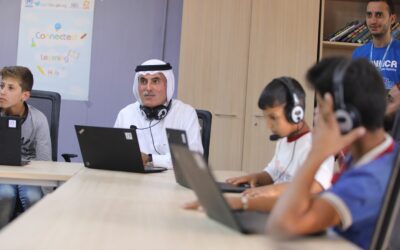Emergency Remote Teaching or Online Learning? Arab Students Experiences During COVID-19
EXECUTIVE SUMMARY
The Covid-19 pandemic has disrupted the lives of billions of people around the globe. In an attempt to contain the spread of the pandemic, governments implemented a series of unprecedented measures, including the temporary closure of educational institutions. Overnight, billions of students, including more than 13 million Arab university students, transitioned from face-to-face to online instruction. This experience can best be described as Emergency Remote Teaching (ERT). This policy brief examines the implications of the Covid-19 pandemic on over 400 beneficiaries of the Abdulla Al Ghurair Foundation for Education’s (AGFE) two scholarship programs from a survey administered in late April.
Key Findings
- Over 60% of scholars rate their experience studying online as average, with similar percentages reporting that they learnt more face-to-face before the pandemic.
- Scholars cite lack of peer interaction, motivation, and weak internet connection as their biggest challenges to studying online. Yet, most scholars report high levels of understanding from their lectures online and feeling adequately supported by their professors.
- The Covid-19 pandemic has affected scholars’ mental health, with over a quarter of students feeling more anxious than before.
- Over one in three employed scholars has undergone a change in their employment status since the start of the Covid-19 pandemic. This includes losing jobs, being put on unpaid leave or reduced pay.
- More than half of surveyed scholars are open to studying online in the future, with almost half of them intending to work and pursue lifelong learning opportunities at the same time.
Recommendations
The scholars feedback suggests some key recommendations for universities and regulatory authorities:
Universities need to:
- Learn from ERT while recognizing it is a unique experience
- Support faculty to (re)design and develop quality online courses
- Closely monitor access to and engagement in online learning
- Provide comprehensive student support
Regulatory authorities need to:
- Accredit high quality online learning programs
- Include comprehensive student support as part of the quality assurance standards
Soraya Benchiba, Research Assistant, Abdulla Al Ghurair Foundation for Education; and Dr. Samar Farah, Director of Research and Innovation, Abdulla Al Ghurair Foundation for Education.
Download the full Policy Brief



